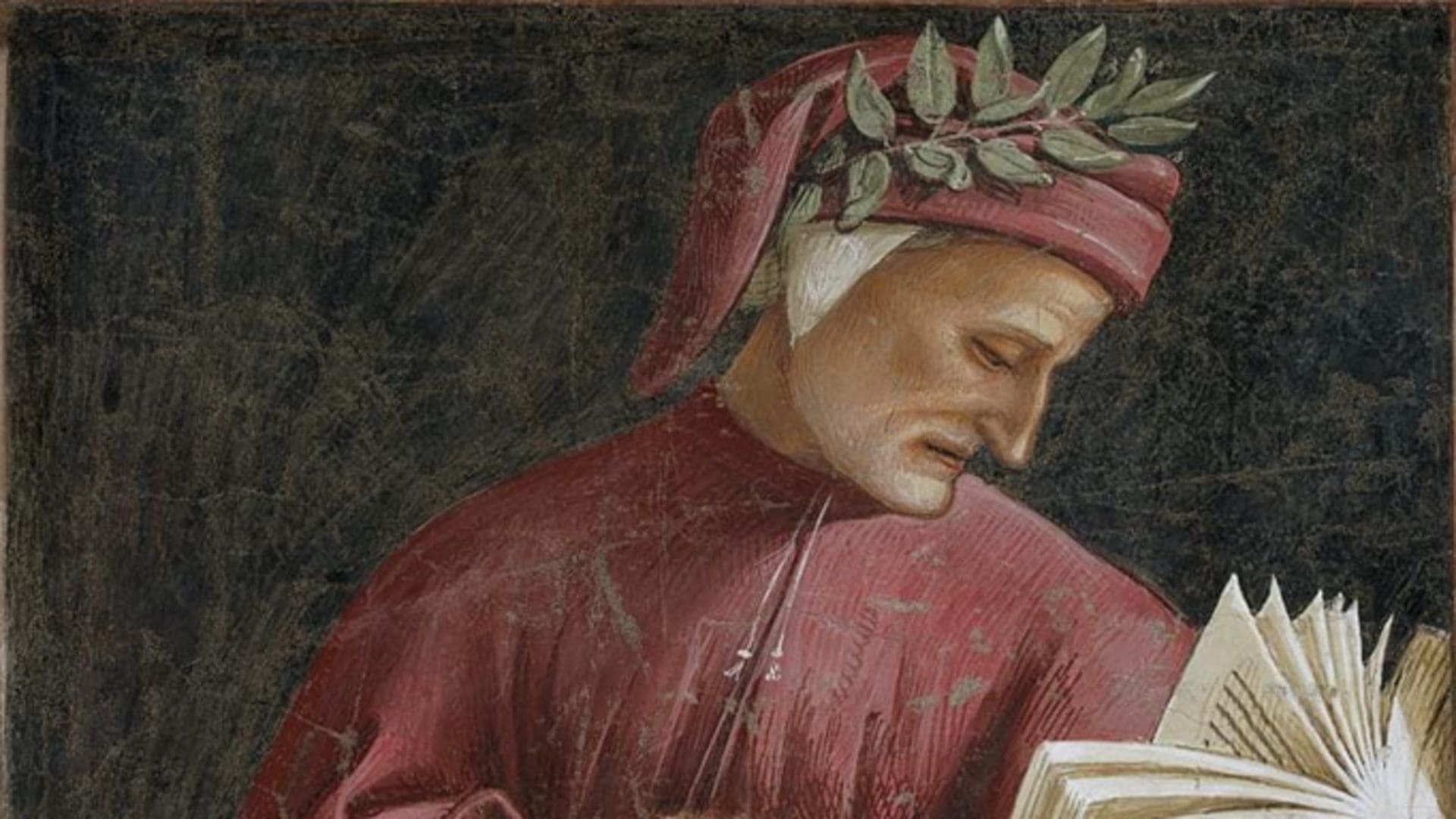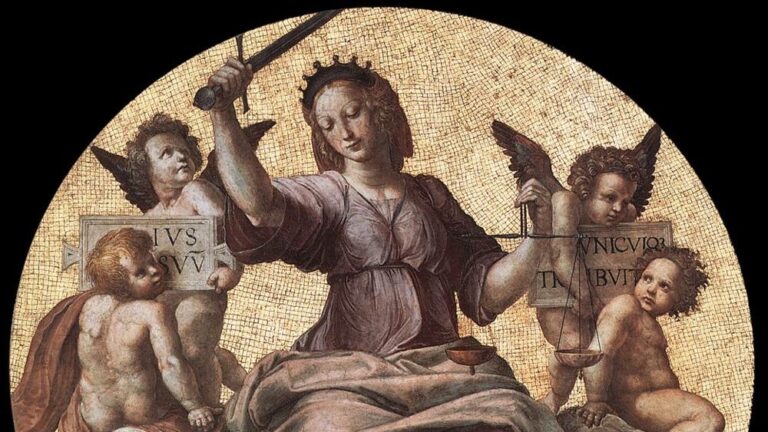Many have an unclear historical concept of humanism, holding that it was a secular philosophy that promoted individualism at the expense of religious norms. This, in theory, would be in line with the pre-Socratic philosopher Protagoras (c. 490-c. 420 BC) who, skeptical of traditional religious beliefs and gods, placed humanity as the starting point for values and consideration when he created his now-famous statement: ‘Man is the measure of all things.’ Humanism, however, never questioned God nor His divine precepts. It was, in fact, an intellectual movement that began in Italy during the 14th century, characterised by the rediscovery of Classical Greek and Latin texts, from which learned men ventured to exemplify certain virtues that were not cultivated by churchmen.
Humanism, a term coined in the early nineteenth century by Friedrich Philipp Immanuel Niethammer, stems from the Latin humanitas (humanities), which corresponds to the Greek concepts of philanthrôpía (loving what makes us human) and paideia (education or learning). While this can be traced back to the Sophists of the mid-fifth century BC, who sought to prepare young men for active citizenship in the polis (city-state), the term was first used by Cicero.
His humanitas was a development from the Sophist rhetoric in which he set forth his theoretical agenda concerning oratory—a training program for speakers that was first enunciated in his De Oratore in 55 BC. In practical terms it was a studia humanitatis (studies of humanities), which certain Church Fathers, such as St. Augustine of Hippo, himself a rhetorician, adapted to a program of basic Christian education—mathematics, linguistic and philological studies, history, and science. The protagonist of this movement was Francesco Petrarca, commonly known as Petrarch (1304-1374).
Historical Context
Western Europe during the Medieval era, despite seeing the rise of cities and universities, was void of Classicism
Western Europe during the Medieval era, despite seeing the rise of cities and universities, was void of Classicism. Ecclesiastical Latin, for example, which incorporated informal elements of Classical Latin, was the intellectual language; the former was less stylised, or rather, not as structured as the latter. There was also a complete absence of the Greek language—scholars that included celebrated Doctors of the Church, such as Saints Augustine, Bonaventure, and Thomas Aquinas had no knowledge of Greek. This was a consequence of the lack of socio-political rapport between the empire at Constantinople and the West after Constantine transferred the See of the Empire from Rome to Byzantium, and even more so after the deposition of the last Roman emperor in the West, Romulus Augustus (Augustulus) in 476.
Men who knew Greek, such as Saint Ambrose (339-397) and Saint Anicius Manlius Severinus Boethius, better known as Boethius (477-524)—the former took it upon himself to learn the language in order to translate the Holy Scriptures into Latin, while the latter translated works of Plato and Aristotle from Greek into Latin—were rare exceptions. It would not be until after the Ecumenical Council of Florence in 1439, when the Church of Constantinople with the Papal Bull Laetentur caeli temporarily reunited itself with the Church of Rome that numerous Greek-speaking scholars would make their presence known in the West and subsequently diffuse the Greek language and corresponding texts from Antiquity.
The historical moment in which Petrarch operates marks what he argues is the decline of the great medieval organisms, specifically the Papacy residing in Avignon (1309-1379), which he labels the Babylonian Captivity—it lasted nearly seventy years, the same length of the Babylonian captivity of the Jews in the Old Testament (Jeremiah 29, 10). This parallel was, however, misleading since the seven popes who reigned there were not only able administrators, they were never confined to Avignon by the French Crown, especially after the city was purchased by Pope Clement VI from Queen Joan I of Naples in 1348.
Petrarch the Man and his Humanism
Petrarch was, at best, a man paradoxical man. A Catholic who took Minor Oders, he was a Roman pagan devotee, as well as, a lover of friendship and sociability, yet intensely private. Having returned Avignon in 1343—his family moved there when he was a child in 1312—he apparently underwent a moral crisis rooted in his inability to make his life conform to his religious faith and possibly heightened by his brother’s decision to enter a Carthusian monastery. There was also the Hundred Years War (1337-1453) between France and England that further added to his pessimism. After temporarily going back to Italy, Pope Clement VI offered him a papal secretaryship in 1347, which he refused; and thereafter a bishopric, which he likewise did not accept.[1]
Petrarch believed that eloquence, ethics, and wisdom were lost during the Middle Ages—fifteenth century humanists, such as Flavio Biondo hypothesised these centuries (from 410—the fall of Rome—to 1410) with the opprobrious term “Middle Ages” ’ and described them collectively as ‘dark’.[2] Petrarch, therefore, held that a new golden age of thought and politics could be realised by returning to the ideals of antiquity and by permitting poets and scholars to lead a revolution in education.
In 1345, while in a diplomatic mission in Verona, he made the discovery of a lifetime: the epistles of Classical authors, Cicero in particular. His enthusiasm for ancient Latin literature was fully shared by his fellow countrymen. The Classical Latin language—the tongue of the rediscovered texts—for Petrarch was not just a discipline, it was the way to re-enter the world of Classical thought and imagination, to find new ways of thinking and evaluating oneself and the world at large. He also had the Greek works translated to Latin so that they could be more readily read and studied. His revival of the Classics became a new learning that sought to reconcile the pagan past with Christian doctrine, though he focused on the former and not on the latter.[3]
He made the discovery of a lifetime: the epistles of Classical authors, Cicero in particular
In Petrarch the demand for a return to the original purity of man becomes one with culture. This renewal detached itself from the mystical, eschatological, and prophetic aspirations that had dominated the spirituality of the thirteenth century with the Joachimites, among others.
Petrarch’s Religious Compositions
Petrarch, after being crowned as Poet Laureate in Rome on 8 April 1341, for which he long petitioned Pope John XXII to have, is perhaps better acknowledged today for his poetry, notably his Italian love sonnets to Laura. It is an unrequited passion for a young woman he first saw in a church and who was married to another man. Yet he distinguished also himself with his religious-oriented works, specifically:
- the Secretum, is a trilogy of dialogues in Latin written between 1347 to 1353. In it he examines the Catholic faith by relying on St. Augustine’s teachings. He highlights that secular achievements do not necessarily preclude an authentic relationship with God, arguing instead that God has provided man with his vast intellectual and creative potential to be used to its fullest.[4]
- the De vita solitaria, in which he exults the monastic life. The call to self-knowledge adjoins itself to the evaluation of wisdom that is founded on the central nucleus of man, which is both life in God and the conversation with the divine Word. Philology and meditation become the fundamental patrimony of philosophy of the new humanities.[5]
- the Canzone alla Vergine Maria, a poem dedicated to the Virgin Mary. In line with St. Augustine’s Confessions, the Canzone, written towards the end of his life, expresses Petrarch’s inner struggle between the flattery of the world, i.e., the vanity of human life, which he cannot renounce and the challenge to lead a virtuous life for which he appeals for divine assistance.
The Legacy
Humanism was the litmus test to determine the sense of literature, architecture, and most other arts prevalent in Europe
The endeavours of Petrarch, unforeseen by him at the time, would eventually inaugurate a phase of the Classical civilisation of ancient Greece and Rome as the greatest the world had ever known or ever could know. Indeed, up to the nineteenth century, humanism was the litmus test to determine the sense of literature, architecture, and most other arts prevalent in Europe. What classifies Petrarch as a humanist was his belief that secular literature and philosophy could enlighten all men and bring about an end to, what Flavio Biondi called, the darker ages of distrusting the critical thinking and non-religious wisdom of the ancients.
There were two major limitations in Petrarch, aside that he spent much of his time to advance his career in the Church. The first was that he, as indicated, had no knowledge of Greek. The other was that he did not display any interest in history after the first century AD. Both of these deprived him of embracing the fullness of what Classicism had to offer. Nevertheless, Petrarch gave birth to a movement that would inspire men like the Chancellor of the Republic of Florence, Coluccio Salutati (1331-1406), who would not only build upon his contributions, but would inadvertently pave the way for the rebirth of the Greco-Roman culture, the Renaissance.
[1] Ernest H. Wilkins, Studies in the Life and Works of Petrarch, Cambridge, Literary Licensing, LLC, 1955, pp. 15-17.
[2] Cfr. Carlton J. H. Hayes, A Political and Cultural History of Modern Europe, Vol. I. T. USA, Morey & Son, 1932, pp. 104-5. The year 476 is now considered as the start of the Middle Ages when the Emperor Romulus Augustus was deposed.
[3] Roderick Conway Morris, ‘Petrarch, the first humanist’, New York Times, (29 May 2004), https://www.nytimes.com/2004/05/29/style/petrarch-the-first-humanist.html, accessed 6 July 2022.
[4] Joseph Nathan Kane, Famous First Facts, New York, International, H.W. Wilson Company, 2000, p. 303.
[5] Luciano Malusa, Dall’umanesimo alla controriforma, Milano, Marzorati Editore, 1975, pp. 12-14.








